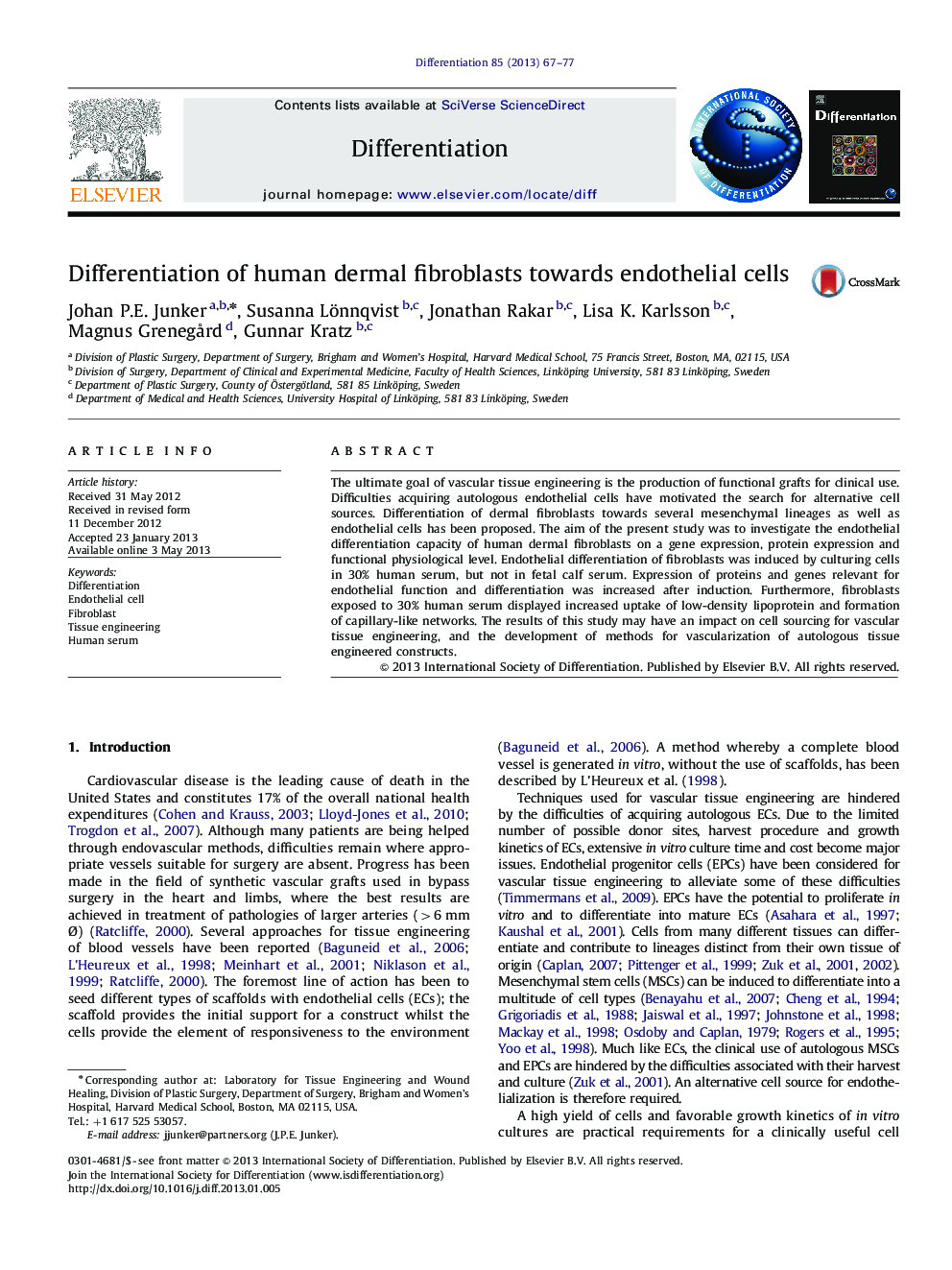| Article ID | Journal | Published Year | Pages | File Type |
|---|---|---|---|---|
| 2119485 | Differentiation | 2013 | 11 Pages |
The ultimate goal of vascular tissue engineering is the production of functional grafts for clinical use. Difficulties acquiring autologous endothelial cells have motivated the search for alternative cell sources. Differentiation of dermal fibroblasts towards several mesenchymal lineages as well as endothelial cells has been proposed. The aim of the present study was to investigate the endothelial differentiation capacity of human dermal fibroblasts on a gene expression, protein expression and functional physiological level. Endothelial differentiation of fibroblasts was induced by culturing cells in 30% human serum, but not in fetal calf serum. Expression of proteins and genes relevant for endothelial function and differentiation was increased after induction. Furthermore, fibroblasts exposed to 30% human serum displayed increased uptake of low-density lipoprotein and formation of capillary-like networks. The results of this study may have an impact on cell sourcing for vascular tissue engineering, and the development of methods for vascularization of autologous tissue engineered constructs.
Graphical abstractFigure optionsDownload full-size imageDownload high-quality image (338 K)Download as PowerPoint slideHighlights► Human dermal fibroblasts differentiate into endothelial-like cells when cultured in human serum. ► Endothelial cell-like fibroblasts express von Willebrand factor, endothelial nitric oxide synthase and form capillary networks. ► Endothelial-like fibroblasts incorporate low-density lipoproteins. ► Endothelial-like fibroblasts display up-regulation of endothelium-specific genes. ► Endothelial-like fibroblasts may function as an autologous cell source for vascular engineering.
